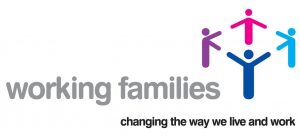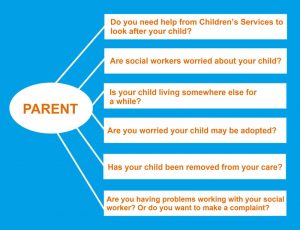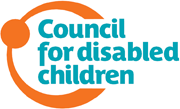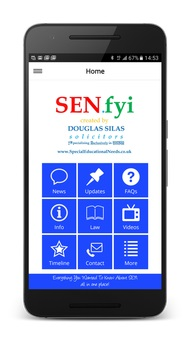Legal Information – help and resources
Advocacy and Legal Advice
What is its advocacy, why might I want it, and what should it do?
An advocate is someone who can make your voice and views heard and understood. They can help you structure what you want to say and accompany you to meetings to help and support you. They can be your voice and offer moral support through conferences and on the SEND journey.
They can come with you to meetings (it is courteous to let the person you are meeting know to expect them). They can help you after a meeting by taking notes or replaying the conversation so you don’t miss anything. They can be someone to chat things through with and someone who can play back what you have said.
They show respect to you and the professionals you interact with and encourage others to act similarly.
An advocate is different from a legal adviser or a solicitor/lawyer. It helps if they understand what should and should not happen and know your rights, but they are not legal advisers in the same way a solicitor would be.
What should it not do?
Advocates should not promote or act on their own opinions and views. They never assume what you need or want or seek to influence you. They should not speak for you – in other words, it should be what you want to say, not what they want to say. They should not behave in a way you wouldn’t, as it will reflect on you. They must not impersonate you – they must not send letters /emails as if they are you or make phone calls as if they are you. They can help you write what you want to say and help you practice what you might want to say on a call. They should not attend meetings or make calls without you.
They should only give you legal advice if they are professionally qualified to do so.
Who can be an advocate?
Anyone can be an advocate. You can have a friend you know and trust act as your advocate. You can use a free professional service like SENDIASS or buy a service. Be savvy and check that you know who and what you are getting when you pick an advocate. They will be beside you and associated with you – pick wisely.
What to look for in an advocate:
The qualities you may want to think about when choosing an advocate is:
- Are they calm in stressful situations?
- Do they listen?
- Do they help clarify things you want to say so they are easy to understand?
- Are they respectful and respected? Do they show respect to ypu and to the professionals they will meet with, and do they have a professional and courteous manner that means they are respected?
- Would they represent you in a way you would want others to see you?
These qualities can be helpful, as they will mean difficult meetings will run more smoothly and you are more likely to have an advocate who can advocate for you. Advocates should help and not hinder, so how they do things is as important as what they do.
Free advocacy and legal advice
Under the 2014 Children and Families Act
“A local authority in England must arrange for children and young people in its area with a disability, and the parents of children in its area with a disability, to be provided with advice and information about matters relating to the disabilities of the children or young people concerned”
SENDIASS is our local free Special Educational Needs Independent Advice and Guidance Service. Cambridgeshire Online | SEND Information, Advice and Support Service (SENDIASS) Although the Local Authority provides the funding for SENDIASS, it must remain independent and can appeal or challenge the authorities if it believes this is appropriate. Their staff are professionally qualified and insured to offer legal advice. You can read more below.
You might want to use the IPSEA website, which also includes free legal advice: (IPSEA) Independent Provider of Special Education Advice. You can also find free guidance at Contact A Family to provide information about getting the right legal advice. Ypu can read more below.
Paying for advocacy
There are many companies and individuals trading in advocacy. All will present their sales pitch and what their business offers. Like any service you buy, check their qualifications, what they offer/don’t offer, look at what you will get for your money and whether they are someone you would want to be associated with. It’s a contractual arrangement so make sure you know what you are buying and read the contract. If you are unsure, ask someone you trust for their support in making the decision.
Whilst there are no professional standards for advocates and no professional bodies that oversee those who trade as advocates, it would be reasonable to expect anyone trading as an advocate to have suitable arrangements in place to protect you – insurance (public liability and indemnity), safeguarding, whistle blowing and complaints policies and to have a Disclosure and Barring Service (DBS) certificate. Any payments you make to a provider should be made through their trading service/company, i.e., not cash in hand.
Paying for legal advice.
Most of the time, you shouldn’t need to pay for legal services for small disputes/disagreements. Knowing what you / your child is entitled to and letting others know you know should be sufficient to unstick the issue. Using a school’s / service’s/ Local authority’s complaint procedures often gets things sorted. But there may be times when that doesn’t work / or when something is so big that you need to have the correct legal advice or representation – this may be the case, for example, if you end up in a tribunal.
You should always check that the person you are going to pay for has the right qualifications and knowledge to help you – if you need representation at a tribunal, ask if they have the proper knowledge and experience to help you. Contact A Family to provide information about getting the right legal advice that you may find useful.

 IPSEA, Independent Parental Special Education Advice, has free and downloadable website resources to help families get the right education for children and young people with all kinds of special educational needs and/or disability.
IPSEA, Independent Parental Special Education Advice, has free and downloadable website resources to help families get the right education for children and young people with all kinds of special educational needs and/or disability. Knowing your rights can help you combine paid work and caring for your child.
Knowing your rights can help you combine paid work and caring for your child. about their children’s welfare.
about their children’s welfare. This handbook aims to empower disabled children and their families through better understanding of rights and entitlements.
This handbook aims to empower disabled children and their families through better understanding of rights and entitlements. Douglas Silas Solicitors have a free App for Smartphone or Tablet for anyone (whether personally or professionally) involved with a child or young person with Special Educational Needs (SEN). The App sections include: News, FAQs, Law, Videos. The app also includes a copy ‘A Guide To The SEND Code of Practice (updated for 2020/21)’ which contains the Code itself with internal and external links to relevant parts of it and other guidance and legislation.
Douglas Silas Solicitors have a free App for Smartphone or Tablet for anyone (whether personally or professionally) involved with a child or young person with Special Educational Needs (SEN). The App sections include: News, FAQs, Law, Videos. The app also includes a copy ‘A Guide To The SEND Code of Practice (updated for 2020/21)’ which contains the Code itself with internal and external links to relevant parts of it and other guidance and legislation.